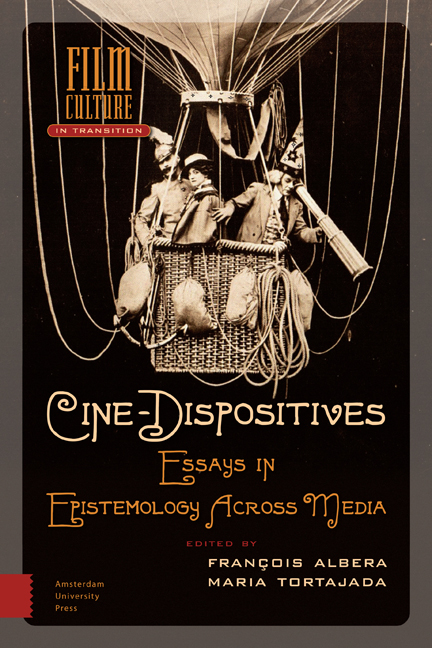Questioning the Word “Dispositif”: Note on the Translation
Published online by Cambridge University Press: 10 February 2021
Summary
Since the nineteenth century, the term “dispositif” has been used extensively in French, from the most trivial sense to the most theoretically sophisticated. Its function as a concept developed within what has been called “French theory” in the anglophone world – and more specifically within the work of Michel Foucault, where it appears next to that of “archeology” in The Archaeology of Knowledge, before taking hold in Discipline and Punish. In film studies, the notion of “dispositif” was central to the theorizations referred to as “apparatus theory” that emerged in the 1970s.
In French, however, the term frequently designates a technical setup – the basis for a mechanical arrangement, a small appliance or the most complex machinery – while also pointing to any concrete or abstract system. It also shares its original meaning in the legal domain with the English “dispositive,” which, unlike its French counterpart, is rarely used. As for “dispositif” in its technical sense, in English it is translated as “appliance,” “device,” “setup,” “system” or, in some cases, “apparatus.” Finally, some of the theoretical senses of the term appear as “apparatus” in English, notably in the discourse of ideological film criticism in the 1970s and in some translations of Foucault. Still, some other translations of the philosopher's work simply repeat the French “dispositif,” a choice fully justified by the specificity of the Foucauldian concept, which implies both a method for discursive analysis supported by an epistemological practice and a conception of processes involved in power.
The present collection of essays sets out to explore different uses of the term “dispositif,” starting from its polysemy in French, and aims to open the field to new forms of theorizations of viewing and listening dispositives by exploiting the rich potential of the notion. One particular aim is to move away from the historically circumscribed use of “dispositif” by apparatus theory – not to overshadow it, but rather, to revitalize the concept by opening it up to new approaches.
During the translation of most of the studies in this book into English, we met with several difficulties.
- Type
- Chapter
- Information
- Cine-DispositivesEssays in Epistemology Across Media, pp. 11 - 14Publisher: Amsterdam University PressPrint publication year: 2015

